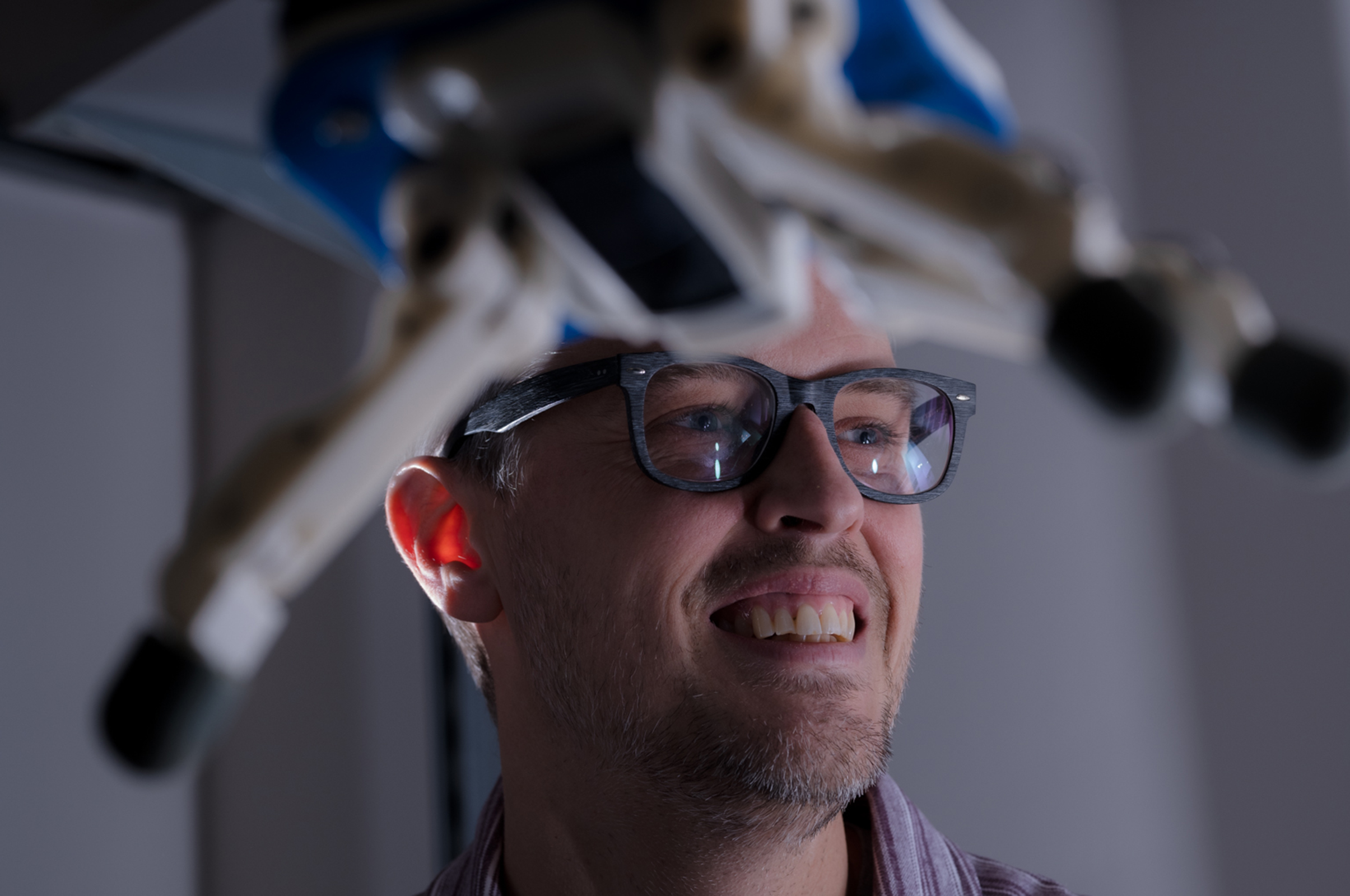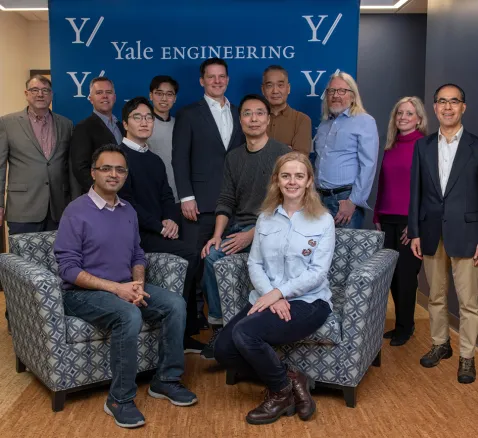Aaron Dollar: Grasping a complex task
This story originally appeared in the 2024 edition of Yale Engineering Magazine.
With an oven, a coffee maker and fridge, the far side of Danny Rakita’s lab on the third floor of A.K. Watson Hall looks a lot like any workplace break room. Here, though, robots will be doing the meal preparations.
It’s part of Rakita’s effort to program robots to become accustomed to helping out in home care settings.
“We want to make deploying kinds of devices a lot more effective in the real world,” said Rakita, assistant professor of computer science.
Walk upstairs to the lab of Marynel Vázquez and you’ll see a device that she’s programming to help make pizza, as part of a robot-human cooking team. She’s developing ways for robots and humans to work together naturally, attuned to the sort of nuances that come with any seasoned partnership — where all parties are able to pick up on each other’s cues, like tone of voice or facial expressions.
“One of the things that drives a lot of our work is advancing how robots make sense of the social world that they’re in,” said Vázquez, assistant professor of computer science.
The number of roboticists in the School has more than doubled in recent years, and Rakita and Vazquez are just two of the faculty driving the new Engineering initiative known as Robotics for Humanity. As the field of robotics is poised to make an impact on modern life as pervasive and revolutionary as computers did a few decades ago, Yale Engineering is working to help integrate them seamlessly and beneficially into the home, the workplace, in healthcare and other aspects of our lives.
The Robotics labs are already immersed in interdisciplinary collaborations both within the School as well as with Law, Psychology, Medicine, Environment, Architecture, Management, and the Humanities, making Yale uniquely positioned to take on essential human challenges.
The School and the University are investing both resources and space in robotics helping to cement Yale as a leader in Robotics, enhance on-campus visibility and create a “must visit” space for students and visitors. Here’s a look at roboticist Aaron Dollar, and some of the groundbreaking work that’s happening in his lab:
Aaron Dollar: Grasping a complex task
These days, you can occasionally find robots that can reliably pick things up and put them down. But for a robot to manipulate an object within its grasp - for instance, rotate it without dropping it - that’s a whole other level of dexterity. The lab of Aaron Dollar, professor of mechanical engineering & materials science & computer science, is building devices capable of those kinds of complex tasks

“We primarily focus on finding novel ways to address the toughest challenges in robot manipulation, especially regarding robotic hands,” Dollar said. “We’re asking ‘How can we impart human-like dexterity onto robots?
Aaron Dollar
Professor of Mechanical Engineering
“We primarily focus on finding novel ways to address the toughest challenges in robot manipulation, especially regarding robotic hands,” Dollar said. “We’re asking ‘How can we impart human-like dexterity onto robots?’”
Projects that have come out of his lab include dexterous prosthetic hands for amputees; grippers for “floating” vehicles (aerial, underwater, or space); and hands that can reorient objects within their grasp, along with computing approaches that allow them to be controlled with minimal sensing.
Dollar has long advocated for open access and established the Yale OpenHand Project, which offers several 3D-printable designs for download. He’s also the co-creator of the Yale-CMU-Berkley Object and Model Set, a group of everyday objects to be used as universal benchmarks for testing robotics and prosthetics.
Dollar’s boundless curiosity has expanded his lab’s mission to well beyond robotic hands, and his list of projects now includes numerous conservation-related efforts.
More Details
Published Date
Apr 2, 2024


